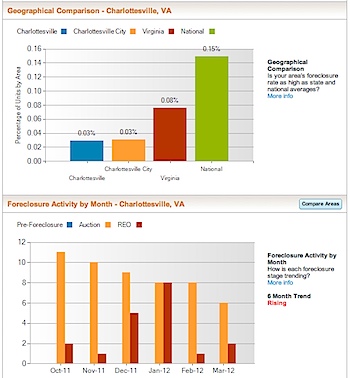“I had four closings last week, and three were delayed because of the banks.”
“I had three closings this week and they’re all screwed up because of the banks.”
“Our movers said that every single one of their moves was delayed because of the banks.”
These are just a few stories I’ve heard over the past month. Parts of the Charlottesville real estate market are picking up, but one aspect that is adding tremendous frustration to the process is the lending side of the equation.
There are a lot of variables that can affect a real estate closing, but there is one truism – don’t schedule your move for the day of, or the day after (and to be safe, wait at least two days) closing. In Charlottesville, you don’t get the keys until the transaction is recorded.
This is not personal; most of the lenders are really nice. The system right now could justifiably be construed as a disaster. The “system” being those people who touch the loans is a mess. From the lender to the processor to the underwriter to the closers, the system is screwy. So …
Be prepared. Be prepared to be patient, to answer more questions than ever before – from multiple years of tax returns to a copy of your college diploma – if the lenders ask for it, it’s not because they want to annoy you, it’s because that’s what the system tells them to do. If they ask for it three times – that’s a pretty clear indication that the system is broken; don’t fight it, just do it.
From The Perfect Loan File in Forbes: (read the whole thing)
It all comes down to your proof. If the lender asks for a specific document, give them exactly what they are asking for, not what “should be OK,†– because it won’t be. This is where the approval process tends to go off the rails, when the lender asks for specific documentation and the borrower supplies something else. Here, too, is where both sides get frustrated. So if the lender asks for a bank statement and there are 5 pages for that bank statement, send them all 5 pages, and not just the summary. If you send them the summary page and they ask again, don’t complain that the lender keeps asking for the same thing when you never sent it in the first place. This may sound elementary, but the vast majority of mortgage approval process woes stem from scenarios just like this.
Why are lenders being so much more redundantly, infuriatingly stringent? Because they need to be able to sell their loans on the secondary mortgage market (you know – Fannie and Freddie). Now that there is some risk associated with making loans, lenders are being overly cautious. Related: How to Explain the Mortgage Crisis to an 8th Grader.
Such is life. Knee-jerk reactions are human nature (see: HVCC). We’ll get through this, but for now, be prepared for frustration, and use a lender you trust; I greatly prefer local lenders (with one exception).




